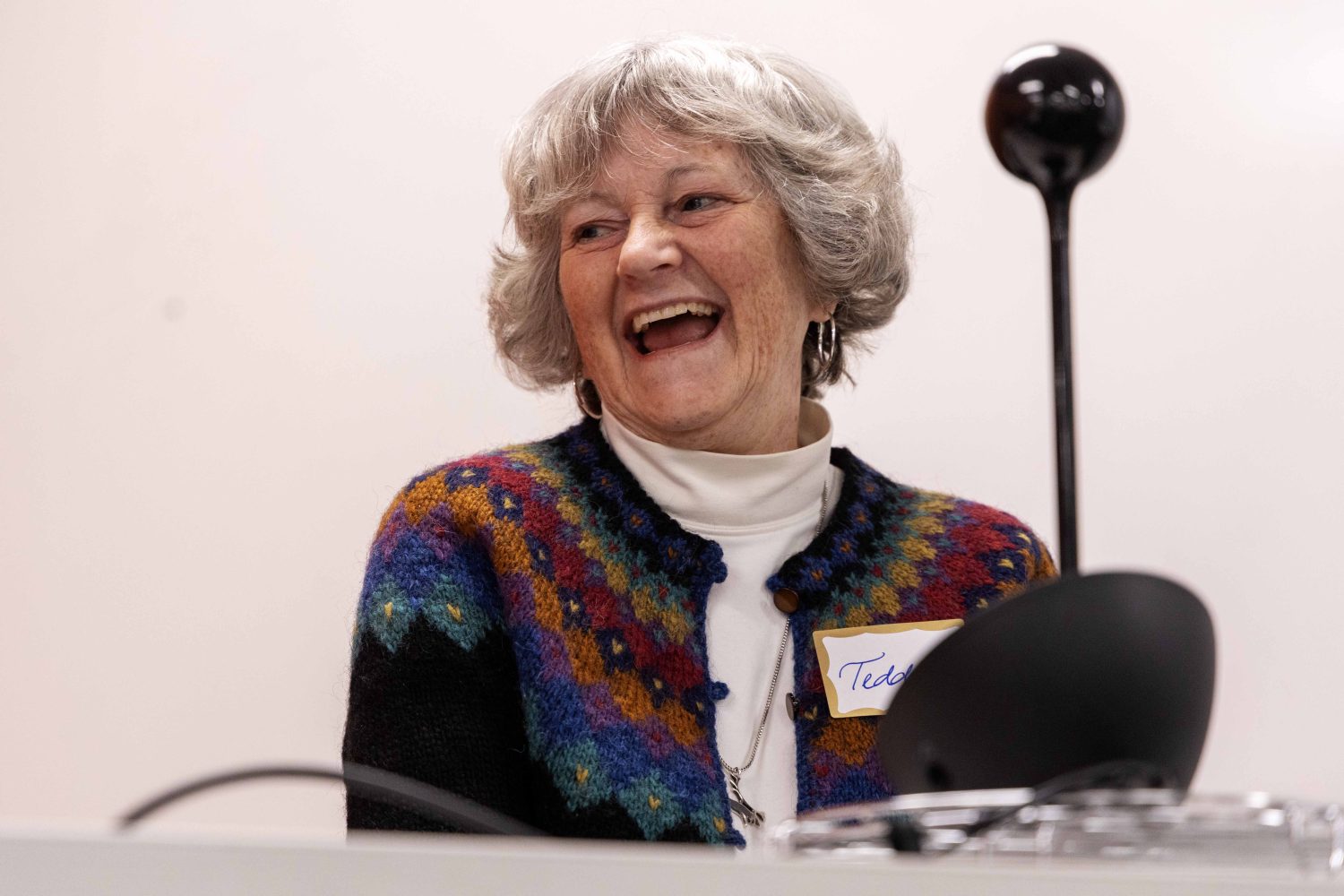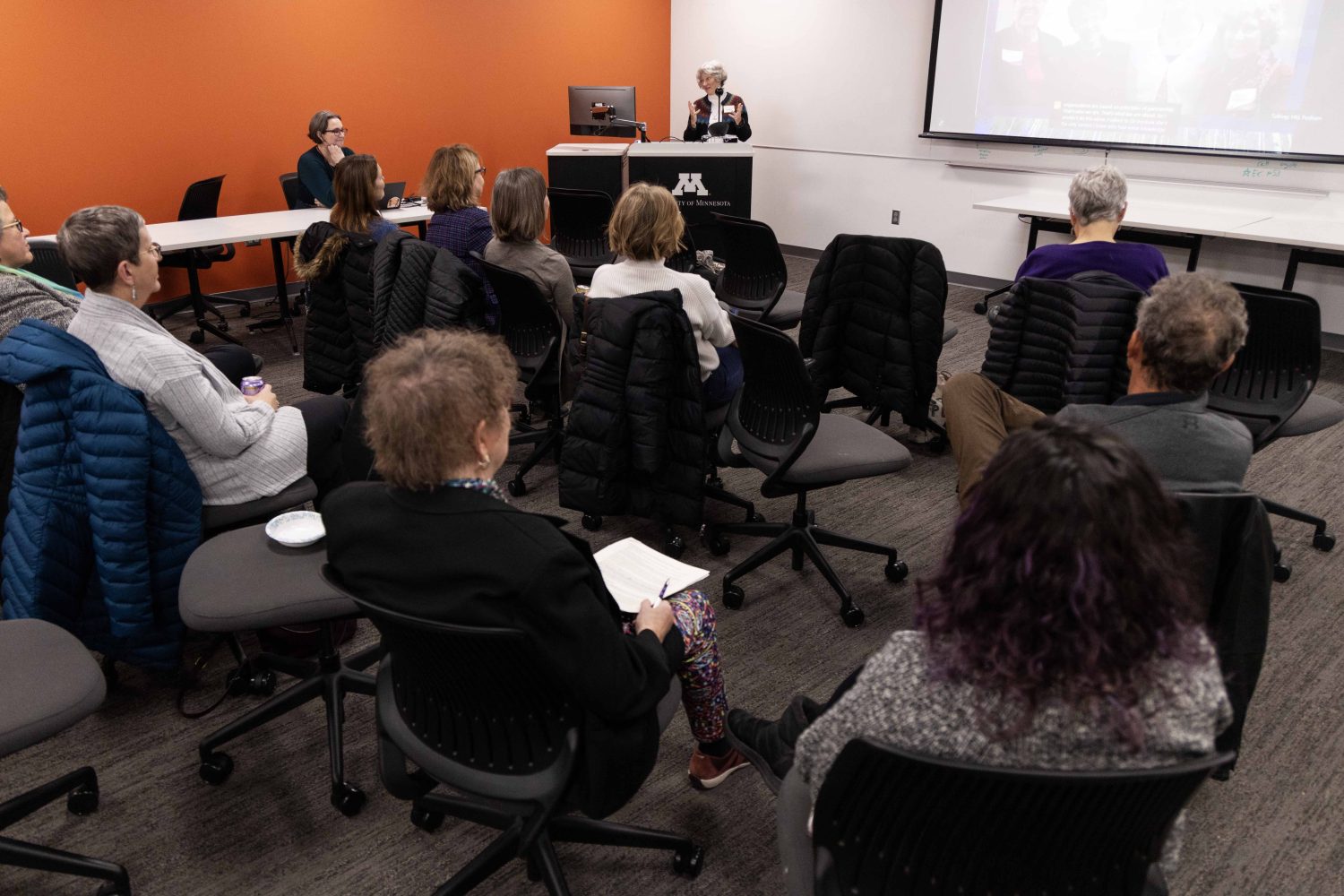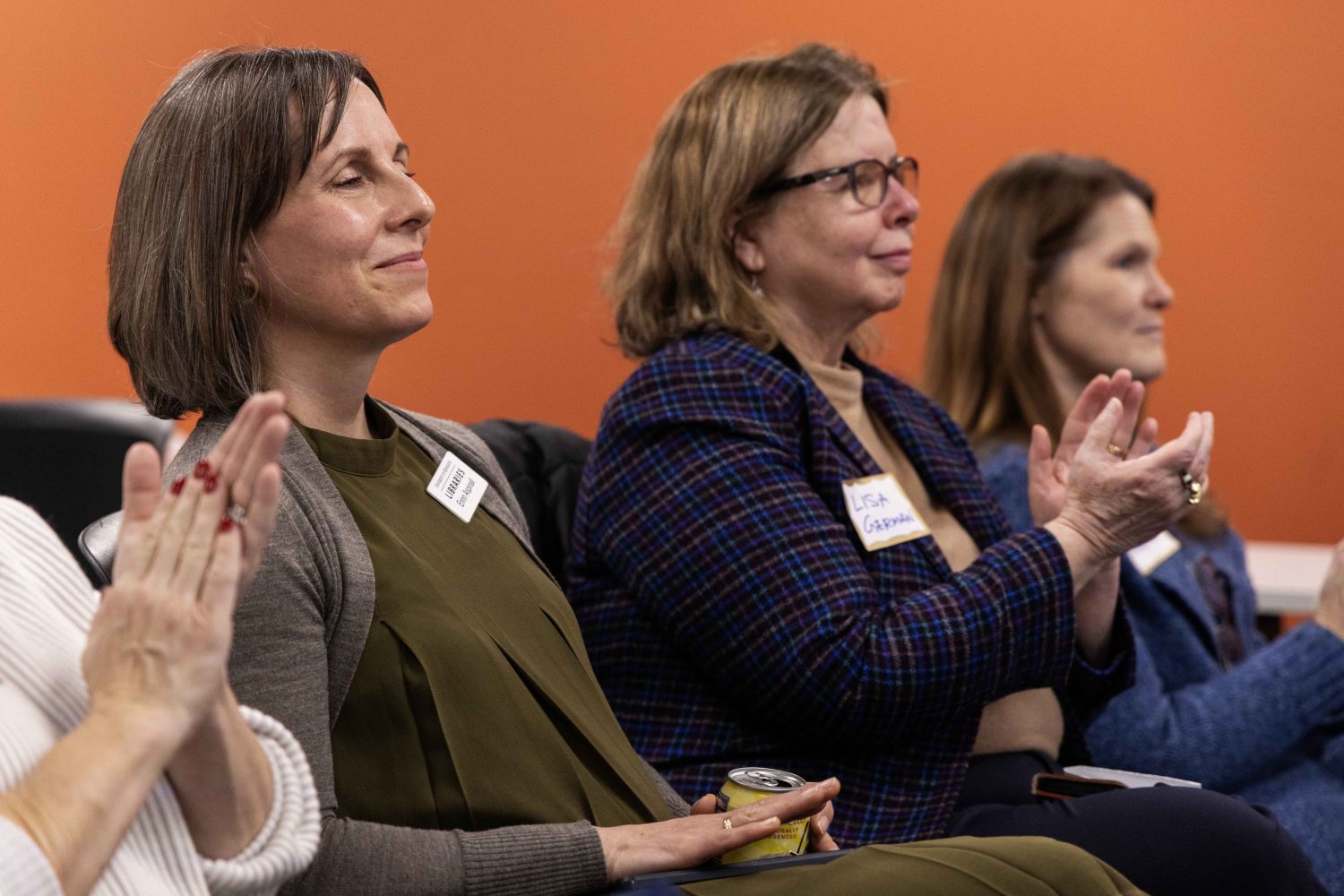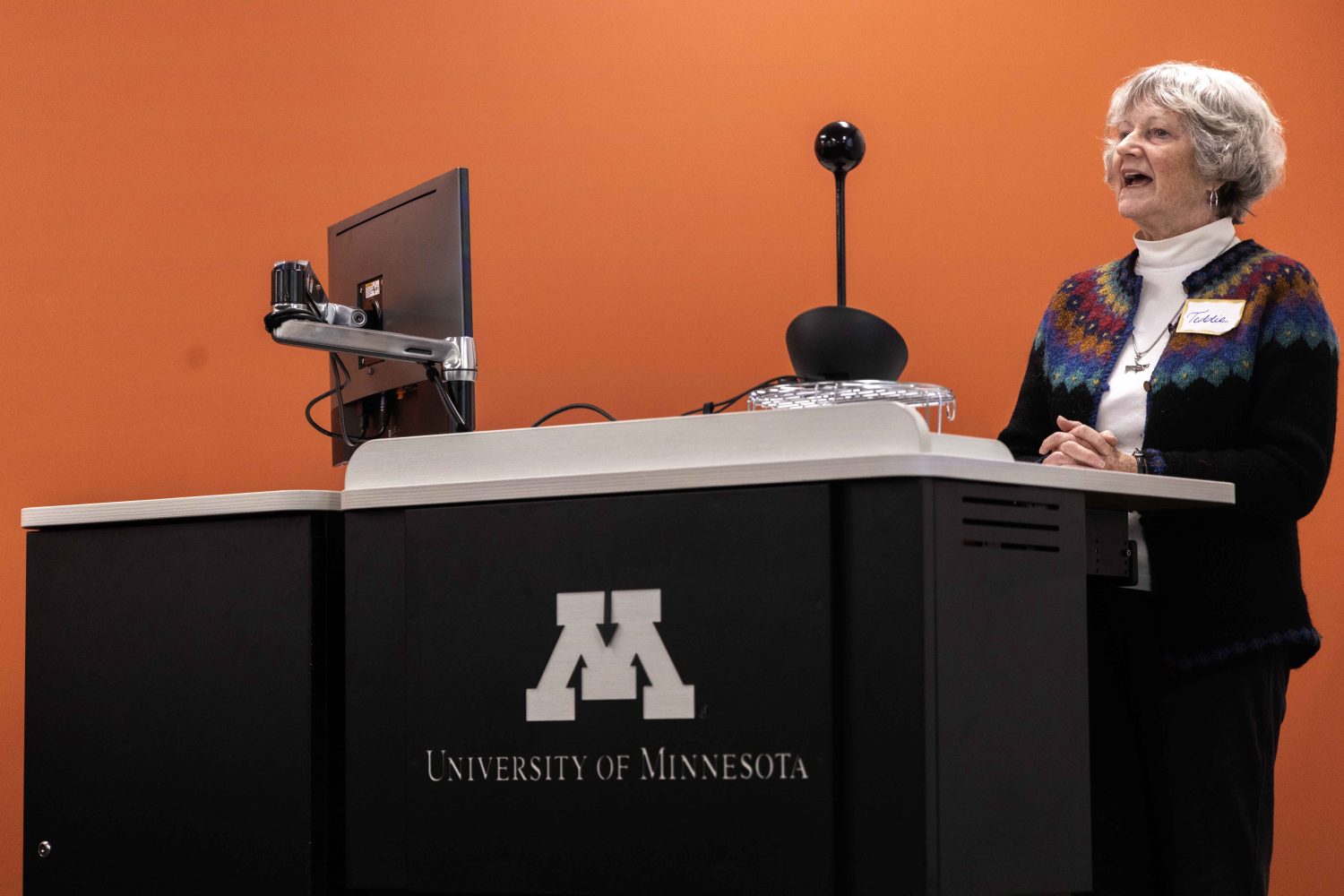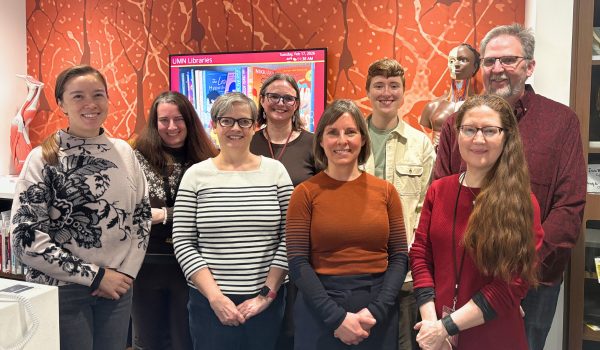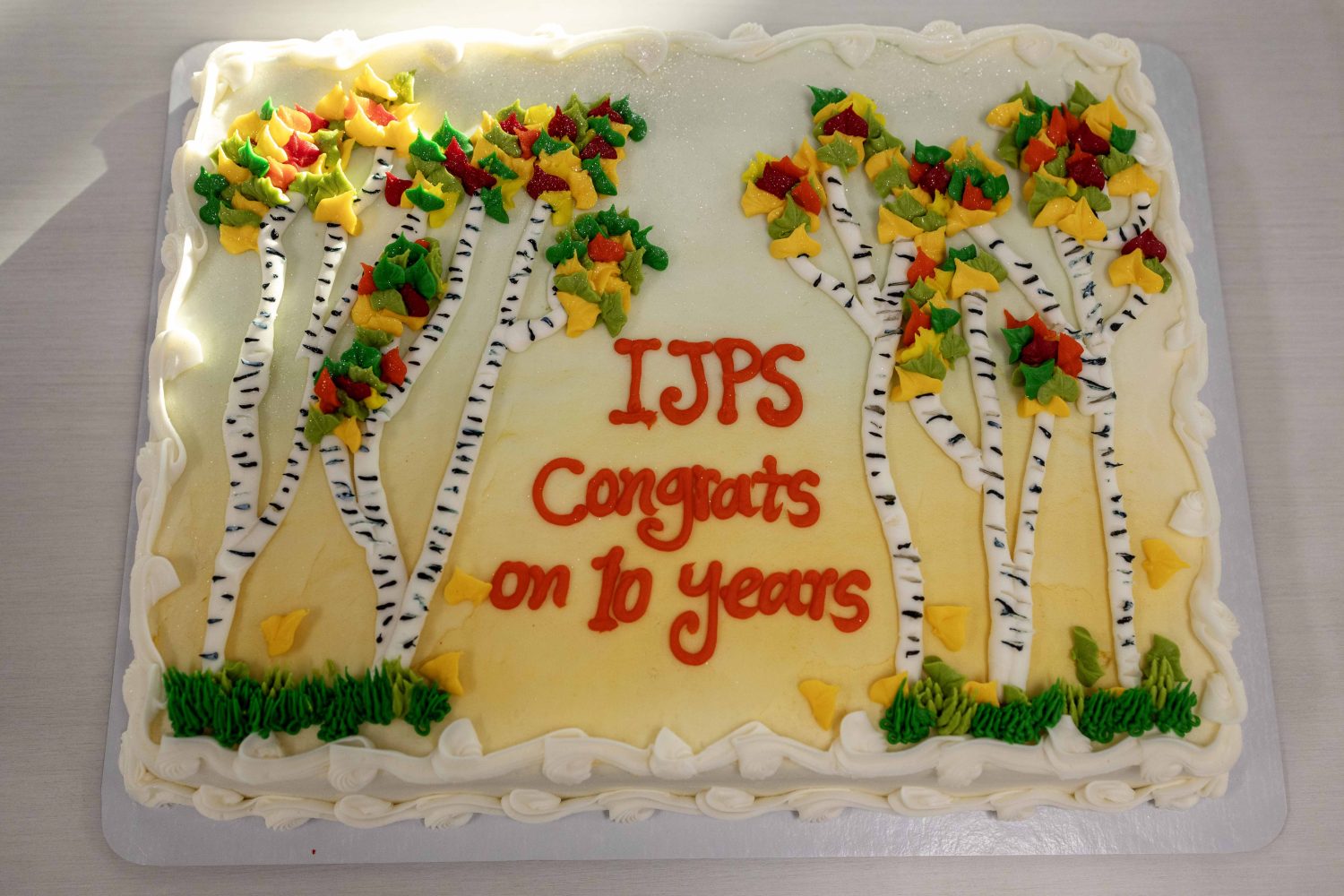
The Interdisciplinary Journal of Partnership Studies celebrates its 10th anniversary on Thursday, December 12, 2024, in the Health Sciences LIbrary. IJPS was created by the University of Minnesota Libraries, the U’s School of Nursing, and the Center for Partnership Systems in California. (Photo/Adria Carpenter)
Last December, the Interdisciplinary Journal of Partnership Studies (IJPS) celebrated its 10-year anniversary of publishing an open-access scholarship that seeks to improve our society through principles of partnership.
IJPS is a volunteer-run, peer-reviewed, and biannual journal developed by the Center for Partnership Systems, the University of Minnesota Libraries, and the University of Minnesota School of Nursing. Since its founding, IJPS has published 24 issues and 230 articles by more than 330 authors.
“There’s so much more that IJPS is capable of doing as we continue to grow, and we have to do it together,” said incoming IJPS Executive Editor Stephanie Gingerich. “We’re really looking forward to what these next few years, 10 years if we’re fortunate enough, will look like.”
The journal officially launched in November 2014 and was founded by Riane Eisler, IJPS editor-in-chief, Teddie Potter, executive editor, Elizabeth Weinfurter, production editor, and Marty Lewis-Hunstiger, former managing editor and current copy editor.
- Teddie Potter, IJPS’ executive editor, speaks at their 10th anniversary on Thursday, December 12, 2024, in the Health Sciences Library. (Photo/Adria Carpenter)
- Teddie Potter, IJPS’ executive editor, speaks at their 10th anniversary on Thursday, December 12, 2024, in the Health Sciences Library. (Photo/Adria Carpenter)
Potter started her career as a nurse and worked in a hospital setting for three years. She eventually quit her job in frustration at the hierarchies in healthcare, but it wasn’t until she read Eisler’s 1987 book, “The Chalice and the Blade,” that she found a name for frustration, the top-down domination model that through fear and force puts man over man, man over woman, race over race, religion over religion.
That moment was a “game changer” for Potter, showing her a new way to redesign society around a partnership model and correct the abuses instituted by hierarchies. Potter and Eisler would later co-write the book, “Transforming Interprofessional Partnerships: A New Framework for Nursing and Partnership-Based Health Care.”
The two decided to create a journal to share scholarship and create connections for cultural transformation, to build a world where all relationships, institutions, policies, and organizations are based on partnership ideals. The decision to adopt an open-access model came later, when on a long drive across northern Minnesota, Potter heard about it from an NPR segment.
“It was as though time stood still, light came through the trees, I almost heard a heavenly chorus. It was just like, ‘Oh my gosh this is what we need to do. We need to start an open access journal,’” she said.
- Erinn Aspinall, director of the Health Sciences Libraries, and Lisa German, dean of the U of M Libraries, celebrate IJPS’ 10th anniversary on Thursday, December 12, 2024. (Photo/Adria Carpenter)
- Teddie Potter, IJPS’ executive editor, speaks at their 10th anniversary on Thursday, December 12, 2024, in the Health Sciences Library. (Photo/Adria Carpenter)
So they did. Potter reached out to Lewis-Hunstiger, a nurse and preceptor at Children’s Hospitals and Clinics of Minnesota and editor-in-chief of Creative Nursing, who helped position IJPS as a scholarly, peer-reviewed journal, and adopted a community voices section and APA style. She also developed a succession plan to ensure the journal’s longevity, and helped create the journal’s design and format, document management system, and editorial structure.
Potter also reached out to Weinfurter, the teaching and learning coordinator and nursing librarian at the U of M Libraries, to discuss publishing. Weinfurter had little publishing experience at the time, but she realized this journal shared a common goal with the Libraries, to be a connector and catalyst for the common good.
“Libraries exist in this space that is just so aligned with partnership. … We really exist in the middle of things,” Weinfurter said, a feature that’s unique among the siloed departments and disciplines of academia.
The Libraries is trying to dismantle the traditional model of scholarly publishing, which is built on that domination system and imposes a financial hurdle on a reader or institution, she said. The open-access model commonly shifts that burden from the reader onto the author, which is better but can still be a barrier.
And that’s where the Libraries steps in. Instead of paying for subscriptions to dozens of different journals, it creates a platform to freely publish scholarly materials online, using in-kind effort from staff and volunteers to peer review and edit articles.
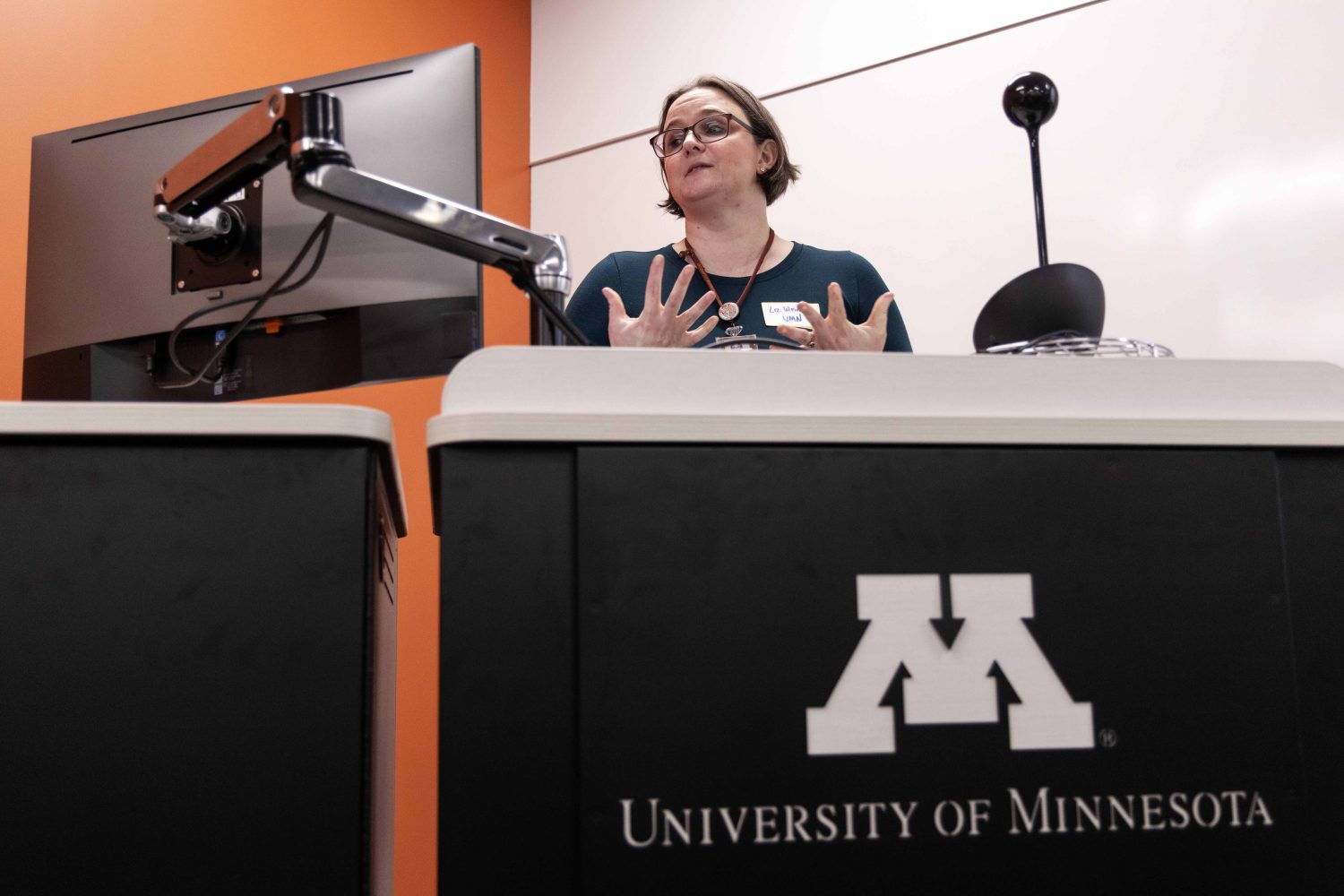
Elizabeth Weinfurter, IJPS’ production editor, speaks at their 10th anniversary on Thursday, December 12, 2024, in the Health Sciences Library. (Photo/Adria Carpenter)
“An open access journal on a platform that’s completely volunteer run for 10 years? That’s amazing. That doesn’t happen a lot,” Weinfurter said.
“One of my biggest appreciations for this journal is the fact that … It’s a labor of love. It’s a labor of the heart. We don’t advertise, we don’t have money coming in from a particular organization,” Potter said. “We can publish these for free, and then authors own the copyright, and they can send their articles anywhere they want … It cracks open the door for all people to be involved in knowledge generation. Nobody is shut out, nobody is left behind.”
IJPS is more important now than ever before, Eisler said, as the domination and partnership systems fight for the future. Under the domination narrative, people are inherently flawed and must be rigidly controlled by those deserving of power. And it takes the threat of violence and abuse, and its implementation, to maintain that top-down hierarchy.
But people today, especially the younger generation, are demanding a better system, she said. The mission of IJPS is to share and promote a new narrative.
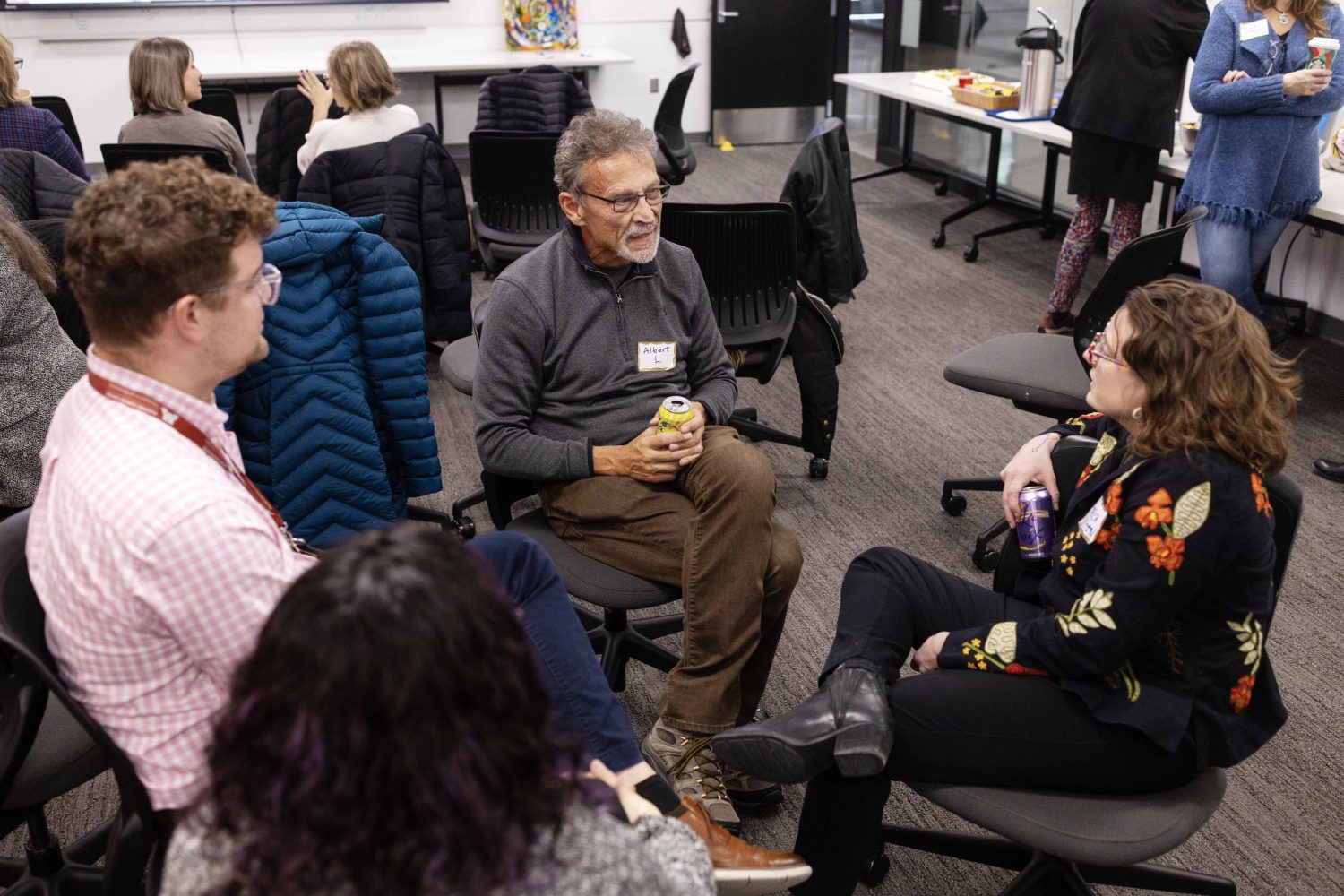
Attendees celebrate IJPS’ 10th anniversary on Thursday, December 12, 2024, in the Health Sciences Library. (Photo/Adria Carpenter)
“There’s lots of journals that are into the business of critiquing what is, but there are very few that offer a positive alternative. And that’s what we have to do, especially now,” Eisler said. “We have to show people there is an alternative, which is a caring economics of partnership, which gives visibility, value, and rewards.”
Going forward, IJPS is working to make scholarship accessible across multiple languages. Much of the scholarly world is penned in English and can disregard valuable work from other countries, Gingerich explained.
“There is a whole globe of stories being told around us,” Gingerich said. “How can we share stories in multiple languages? What are the resources? How do we do this ethically, responsibly, sustainably, and not burn everybody out?”
IJPS has a history of seeking out diverse voices, she said. And they’ll continue to promote authors from different perspectives, backgrounds, disciplines, and countries, so the conversation is dominated by voices from one region.
“I believe we are creating the world that we want to see happen,” Potter said. “And each one of you that has participated … are part of this great vision of how we build a better future. So here’s to the next 10 years.”


